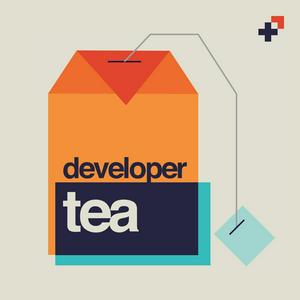🎧 Episode Notes: The Meta-Habit of High Performers: How Outer Loops Unlock Growth
In today's episode, we are discussing one of the most common habits I see in high-performing managers and senior engineers. It isn't a single trick, a morning routine, or a specific productivity hack—it is a meta-habit. It is a specific way of thinking about how you spend your energy and time to avoid the burnout that comes from working hard without seeing commensurate gains,.
The Burnout Trap: Understand that if you keep putting more energy in without getting equal or greater results out (sub-linear returns), you are heading for a wall. You cannot simply "grind" your way to the next level,.
Recognize Your Default Loops: Whether you know it or not, you are already running "loops"—automatic heuristics and behaviors that define your decisions, like "while happy at job, stay at job",.
The Inner vs. Outer Loop: Learn the difference between the Inner Loop (your execution, habits, and daily protocols) and the Outer Loop (the meta-observation that evaluates the system).
Governing the Experiment: Discover how to use an Outer Loop to set longer-term conditionals for your career experiments (e.g., "I will try this until X"), preventing you from reacting emotionally to single data points,.
Systematic Evaluation: Move from making random changes to making informed adjustments by stepping out of the daily grind to evaluate the trajectory of your habits,.
🙏 Today's Episode is Brought To you by: Unblocked
There’s a good chance you’ve already tried a few AI code review tools — and you’re probably ignoring most of their comments.
Not because AI can’t review code, but because it’s missing context. Most AI reviewers focus on surface-level issues: style nits, obvious refactors, or restating what’s already clear from the diff. Meanwhile, the things you actually care about, like whether a change violates an earlier architectural decision or quietly duplicates existing logic, go unnoticed.
That’s the problem Unblocked is built to solve.
Unblocked’s AI code review is grounded in decision-grade context, prior PRs, design discussions, documentation, and system-level constraints—the same context senior engineers rely on when reviewing code.
Teams using Unblocked report fewer comments, higher signal, and automated reviews they actually trust — enough that many have turned off other AI review tools entirely.
Even if you’ve already written off AI code review, Unblocked is worth a look.
Get a free three-week trial at getunblocked.com/developertea.
📮 Ask a Question
If you enjoyed this episode and would like me to discuss a question that you have on the show, drop it over at: developertea.com.
📮 Join the Discord
If you want to be a part of a supportive community of engineers (non-engineers welcome!) working to improve their lives and careers, join us on the Developer Tea Discord community by visiting https://developertea.com/discord today!
🧡 Leave a Review
If you're enjoying the show and want to support the content head over to iTunes and leave a review! It helps other developers discover the show and keep us focused on what matters to you.


